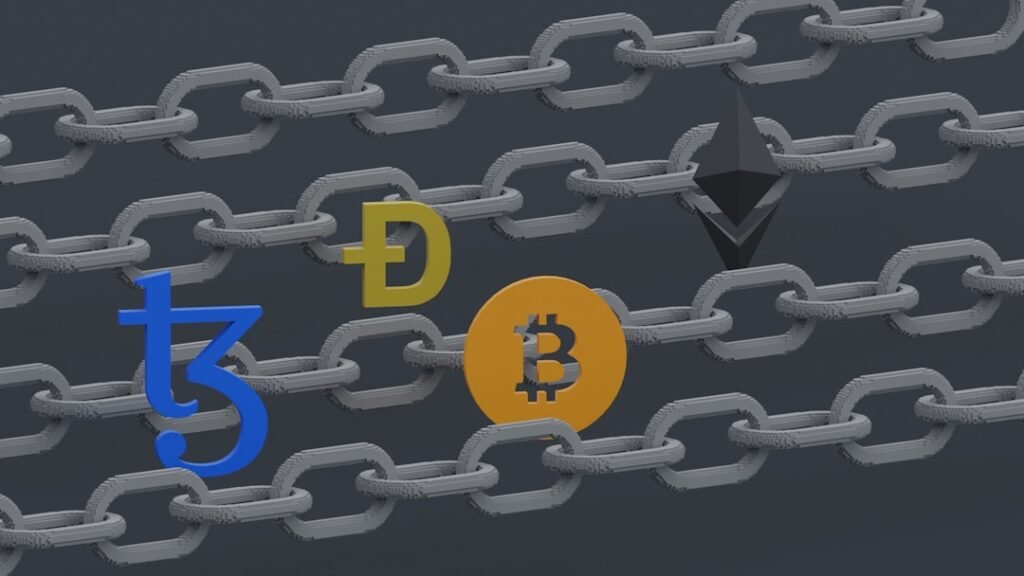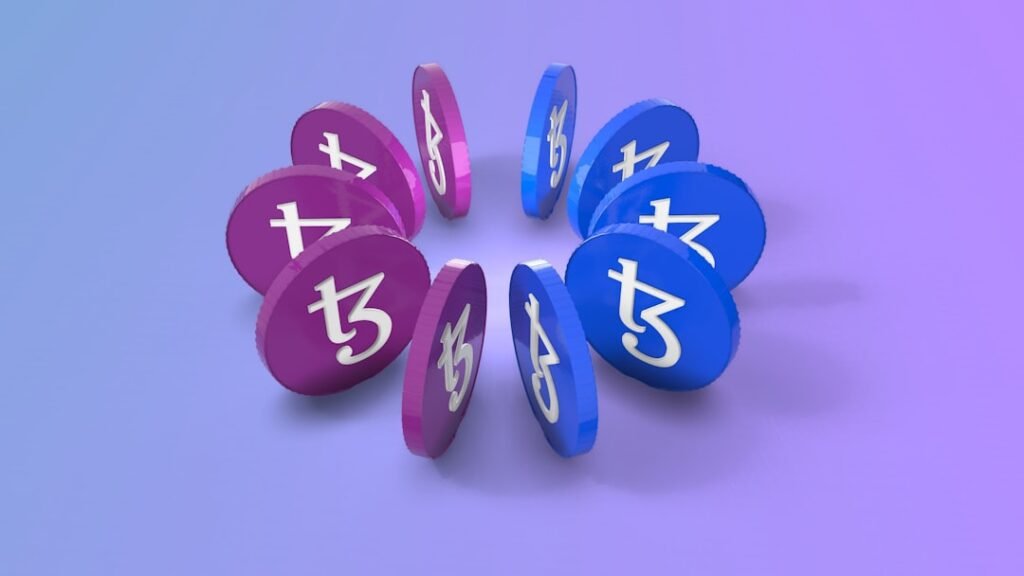The boundaries of commerce are no longer defined by national borders, but by the limitations of traditional financial infrastructure. For decades, businesses aspiring to a global reach have been encumbered by the friction of cross-border payments: exorbitant bank fees, slow settlement times, currency conversion complexities, and the ever-present threat of chargeback fraud. Today, a new economic rail has emerged, one that operates without borders, time zones, or intermediaries. This is the world of cryptocurrency.
Adopting cryptocurrency is no longer a niche experiment for tech-forward companies; it is a profound strategic decision to unlock a new, affluent, and digitally native global customer base. By integrating a crypto payment platform, your business can effortlessly accept payments in currencies like Bitcoin (BTC) and Ethereum (ETH) from anywhere in the world, just as easily as you accept a local credit card payment. The key is that you don’t need to become a crypto expert or expose your business to price volatility.
This analysis will deconstruct the strategic imperative for adopting crypto payments and provide a clear roadmap for integrating a platform that minimizes complexity while maximizing reach. It’s time to move beyond the hype and harness blockchain technology as a practical, powerful tool for global growth.
The Strategic Imperative: Why Your Business Must Consider Crypto Payments Now
Integrating a cryptocurrency payment gateway is not merely about adding another payment button to your checkout page. It is a fundamental enhancement of your company’s financial capabilities, offering distinct competitive advantages.
1. Access a Borderless Global Economy
Traditional international payments are a patchwork of correspondent banks, each taking a cut and adding days to the settlement process. Cryptocurrencies operate on a global, decentralized ledger.
- True Global Reach: A customer in Japan can pay a merchant in Argentina as seamlessly as if they were in the same room. There are no international wire transfer forms, no exorbitant bank fees, and no waiting for funds to clear across different banking systems.
- Tap into New Demographics: The crypto economy represents a rapidly growing and often affluent segment of the global population. These users actively seek out merchants who support their preferred payment method, creating a new, loyal customer acquisition channel for your business.
2. Drastically Reduce Transaction Costs
The cost of accepting payments is a significant operational expense, especially for international sales. Crypto payment platforms offer a compelling alternative.
| Payment Method | Typical Cross-Border Fees | Settlement Speed |
|---|---|---|
| Credit Cards (International) | 3.5% – 5.0% + fixed fees | 2-5 Business Days |
| Wire Transfers | 25−25−50 per transaction | 1-4 Business Days |
| Crypto Payment Platforms | 0.5% – 1.0% | Near-Instant to Minutes |
By sidestepping the traditional card networks and banking systems, you can retain more revenue from every single transaction.
3. Eliminate Chargeback Fraud
Chargeback fraud—where a customer makes a purchase and then fraudulently disputes the charge with their credit card company—costs merchants billions of dollars annually. Cryptocurrency transactions are, by their nature, irreversible.
Once a transaction is confirmed on the blockchain, it cannot be reversed by the sender. This effectively eliminates this entire category of fraud, providing merchants with payment finality and security that is impossible with credit cards.
While this means customer service for refunds must be handled directly, it removes a significant source of revenue loss and operational headaches for businesses, particularly in high-risk industries.
4. Meet Growing Consumer Demand
더 이상 만약 consumers will want to pay with crypto, but 언제 it will become a mainstream expectation. Early adopters are positioning themselves as forward-thinking leaders in their industries.
- Brand Enhancement: Accepting cryptocurrencies signals that your brand is innovative, technologically savvy, and aligned with the future of finance.
- Market Research: A 2024 study by a leading payment processor found that over 40% of crypto owners would prefer to use it for online purchases if the option were available and seamless. This represents a vast, underserved market.
How Crypto Payment Platforms Work: A Shield Against Volatility
A common misconception holding businesses back is the fear of cryptocurrency’s price volatility. This is a solved problem. Top-tier crypto payment platforms act as a bridge and a shield, allowing you to gain all the benefits of crypto acceptance with none of the risk.
Here’s the standard workflow:
- Customer Checkout: Your customer selects “Pay with Crypto” at checkout and chooses to pay with Bitcoin, Ethereum, or another supported coin.
- Locked-In Exchange Rate: The payment platform presents the customer with a real-time exchange rate (e.g., 1 BTC = $70,000 USD) and a payment address. This rate is typically locked for 15-30 minutes, giving the customer time to complete the payment.
- Instant Confirmation: The platform monitors the blockchain and provides instant payment confirmation to you, the merchant, allowing you to ship the product or provide the service immediately. You are not waiting for multiple blockchain confirmations.
- Automatic Fiat Conversion & Settlement: This is the critical step. Behind the scenes, the platform instantly converts the received cryptocurrency (e.g., 0.001 BTC) into your preferred fiat currency (e.g., USD, EUR, JPY).
- Batch Settlement: The platform deposits the converted fiat currency into your business bank account on a regular schedule (e.g., daily or weekly), just like a traditional payment processor.
The Key Takeaway: Your business never has to custody, manage, or be exposed to the price fluctuations of the raw cryptocurrency. You simply receive your payment in your local currency, minus a small processing fee.
Core Features to Demand from Your Crypto Payment Partner
Choosing the right platform is crucial for a successful integration. Look for a partner that provides not just a gateway, but a comprehensive solution for global commerce.
Institutional-Grade Security and Custody
The platform will be handling your funds. Its security must be non-negotiable.
- Cold Storage: The vast majority of crypto assets should be held in offline, air-gapped “cold storage” wallets, immune to online hacking attempts.
- Multi-Signature Technology (Multisig): Requiring multiple private keys to authorize a transaction, preventing a single point of failure or a rogue employee from moving funds.
- Insurance: Does the platform have a robust insurance policy from a reputable underwriter to cover assets held in custody?
- Regulatory Compliance: Is the provider registered as a Money Services Business (MSB) and compliant with global AML/KYC regulations?
Seamless and Flexible Integration
The platform should make it incredibly easy to start accepting payments without requiring a team of blockchain developers.
- E-commerce Plugins: Look for pre-built, one-click integrations for major platforms like Shopify, WooCommerce, Magento, and BigCommerce.
- Well-Documented APIs: For custom websites or applications, the provider must offer a modern, RESTful API with clear documentation and SDKs for popular programming languages.
- Hosted Checkout Pages: A simple option where you can direct customers to a secure, branded checkout page hosted by the provider, requiring minimal technical effort.
Currency Flexibility and Settlement Options
A superior platform offers choice, allowing you to tailor your strategy as your comfort with digital assets grows.
- Broad Coin Support: While Bitcoin and Ethereum are essential, support for major stablecoins (like USDC and USDT) is critical. Stablecoins are pegged 1:1 to fiat currency, offering a low-volatility payment option for customers.
- Multi-Fiat Settlement: You should be able to receive settlements in your choice of major world currencies (USD, EUR, GBP, JPY, etc.).
- Optional Crypto Holdings: For businesses that do want exposure to digital assets, the platform should offer the ability to settle a portion (or all) of your payments in crypto or stablecoins directly to your own corporate wallet.
Transparent Invoicing, Reporting, and Support
The back-office tools are just as important as the customer-facing checkout.
- Merchant Dashboard: A clean, intuitive dashboard to view all transactions, manage settlements, and track revenue in real-time.
- Automated Invoicing: The ability to generate and send professional invoices payable with crypto.
- Accounting Reconciliation: The system must provide clear reports that easily reconcile with your existing accounting software, showing the original crypto amount, the conversion rate, the fee, and the final fiat deposit.
- 전담 지원: When dealing with payments, you need access to responsive, expert support that understands both the technical and financial aspects of the service.
Conclusion: Future-Proofing Your Business for the New Economy
The internet connected the world with information; blockchain and cryptocurrencies are connecting it with value. By viewing crypto not as a speculative asset but as a superior payment rail, businesses can break free from the constraints of an outdated financial system.
Integrating a top-tier crypto payment platform is a low-risk, high-impact initiative. It requires no direct management of volatile assets, drastically lowers the cost of accepting global payments, eliminates chargeback fraud, and positions your brand at the forefront of financial innovation. The question for business leaders is no longer whether to adopt crypto payments, but how quickly you can integrate this powerful tool to expand your empire into the borderless digital economy.
2025’s Best Crypto Payment Platforms Reviewed: Which is Right for Your Business? (Fees, Security, and Supported Coins Compared)
In 2025, accepting cryptocurrency is no longer a fringe curiosity; it’s a competitive necessity for businesses targeting a global, tech-savvy audience. The demand is clear, and the benefits—lower fees, no chargebacks, and access to new markets—are compelling. Yet, the market is crowded with a dizzying array of “crypto payment gateway” providers, each promising seamless integration and instant settlements. How does a discerning business owner, CFO, or e-commerce manager cut through the noise to select a partner that is not just functional, but truly optimal for their specific needs?
Choosing a crypto payment platform is a critical infrastructure decision. The right partner can unlock new revenue streams and streamline international operations. The wrong choice can lead to security vulnerabilities, frustrated customers, and accounting nightmares.
This definitive review provides a rigorous evaluation framework for analyzing the top crypto payment platforms. We will dissect the crucial pillars of a superior service, compare the leading contenders, and provide clear, actionable guidance to help you select the platform that aligns perfectly with your business model, risk tolerance, and growth ambitions.
The Evaluation Framework: 5 Pillars of a World-Class Crypto Payment Platform
To move beyond marketing claims, we must assess providers against a standardized set of criteria. These five pillars represent the non-negotiable elements of a robust and reliable crypto payment solution.
- Security & Trust Architecture: How are funds secured? Who holds the crypto? What are the layers of protection against internal and external threats? This is the bedrock of any financial service.
- Fee Structure & Total Cost: What is the true, all-in cost of a transaction? This involves scrutinizing not just the headline percentage but also network fees, withdrawal fees, and potential hidden costs.
- Currency & Settlement Ecosystem: How many cryptocurrencies are supported? More importantly, how flexible are the settlement options? Can you receive fiat, stablecoins, or the original crypto?
- Integration & Merchant Experience (MX): How easy is it for your team to implement and manage the platform? This covers everything from e-commerce plugins and API quality to the usability of the merchant dashboard.
- Customer Experience (CX): How seamless and intuitive is the payment process for your end customer? A clunky or confusing checkout will lead to abandoned carts, negating all other benefits.
The Contenders: Comparative Analysis of Leading Platforms
We will analyze four archetypal platforms that represent the different strategic approaches available in the market. While specific features change, these archetypes remain constant.
| Evaluation Pillar | BitPay (The Veteran) | Coinbase Commerce (The Ecosystem Player) | CoinPayments (The Specialist) | Blockonomics (The Non-Custodial) |
|---|---|---|---|---|
| Security & Trust | Custodial; Fully licensed & regulated; Cold storage; SOC 2 compliant | Custodial; Leverages Coinbase’s institutional security; Crypto insurance | Custodial; BitGo custody; Multi-sig security | 비수탁; Payments go directly to your wallet; You control the keys |
| Core Fee Structure | 1% processing fee | 1% processing fee | 0.5% processing fee | 1% fee (first 10 free/month); Direct P2P has no fee |
| Additional Fees | Network fees passed to customer; Fiat settlement fees may apply | Network fees passed to customer; No withdrawal fees for fiat | Complex; Coin-specific withdrawal & conversion fees can add up | None; You only pay the blockchain network fee |
| Supported Coins | ~15 major coins & stablecoins (BTC, ETH, USDC, DOGE, etc.) | ~10 major coins & stablecoins supported by Coinbase | 2,000+ altcoins & tokens; Widest selection on the market | BTC, ETH, and major EVM chains |
| Fiat Settlement | Yes; Direct to bank in 8 fiat currencies | Yes; Direct to bank (USD, EUR, GBP) via Coinbase account | Yes; via third-party integrations, can be complex | No; Requires manual conversion or a separate exchange service |
| 통합 | Excellent plugins for Shopify, etc.; Robust API | Excellent plugins; Simple API | Good plugins & API, but can be less polished | Good plugins for WHMCS, WooCommerce; API focused |
| Best For | Large e-commerce, enterprises needing reliability and direct fiat settlement. | Businesses already in the Coinbase ecosystem; Simple use cases. | Crypto-native businesses, services needing vast altcoin support. | Merchants prioritizing full control, decentralization, and low fees. |
Deep Dive: Choosing the Right Archetype for Your Business
The table provides a high-level overview. Now, let’s analyze the strategic implications of choosing each type of platform.
1. The Veteran: BitPay
BitPay is one of the oldest and most established players. Their value proposition is trust and simplicity for the traditional merchant.
- Strengths:
- Turnkey Fiat Settlement: This is their killer feature. You never have to touch crypto. You receive USD, EUR, etc., in your bank account, making accounting simple.
- Reliability & Compliance: As a US-based, regulated company, they offer a high level of trust and robust compliance procedures (SOC 2).
- Polished Merchant Tools: Their dashboard, invoicing, and e-commerce plugins are mature and enterprise-ready.
- Considerations:
- Limited Coin Selection: They focus on the most liquid and established cryptocurrencies, which may not satisfy customers wanting to pay with newer altcoins.
- Custodial Risk: You are trusting BitPay to custody the funds during the transaction and settlement process.
Ideal User Profile: A medium-to-large e-commerce business or enterprise that wants the benefits of crypto acceptance (global reach, no chargebacks) with the operational familiarity of a traditional payment processor. Their priority is minimizing complexity and risk.
2. The Ecosystem Player: Coinbase Commerce
Coinbase Commerce leverages the powerful brand and security infrastructure of one of the world’s largest exchanges. Its value proposition is seamless integration for the modern digital business.
- Strengths:
- Brand Trust: The Coinbase name carries significant weight and trust with crypto-savvy consumers.
- Simplicity: The setup is famously easy, especially for users who already have a Coinbase account. Integration is clean and modern.
- Ecosystem Benefits: Seamlessly converts and settles funds into a Coinbase account, which can then be used for trading or fiat withdrawal.
- Considerations:
- Mandatory Coinbase Account: To get the full benefit (like fiat conversion), the merchant needs a Coinbase account, which creates a dependency on a single ecosystem.
- Custodial Model: Like BitPay, they custody the funds, though some self-custody options are available but less common.
Ideal User Profile: A startup, online creator, or SMB that wants a fast, easy, and trusted way to start accepting crypto. They may already use Coinbase and appreciate the tight integration of its services.
3. The Specialist: CoinPayments
CoinPayments carved out a niche by focusing on one thing: maximum coin support. Their value proposition is universality for the crypto-native world.
- Strengths:
- Unmatched Coin Support: If a coin exists, there’s a good chance CoinPayments supports it. This is essential for businesses targeting specific blockchain communities or wanting to accept a wide variety of tokens.
- Low Headline Fee: The 0.5% processing fee is one of the lowest in the industry.
- Considerations:
- Complex Fee Structure: The low headline fee can be misleading. Merchants must pay close attention to the variable network and withdrawal fees for each coin, which can make TCO (Total Cost of Ownership) hard to predict.
- 사용자 경험: While functional, the merchant dashboard and checkout experience can feel less polished than more mainstream competitors. Fiat settlement is often handled via partners, adding another layer of complexity.
Ideal User Profile: A crypto-native business like an NFT marketplace, a blockchain-based game, or a service that caters to traders and altcoin enthusiasts. Their priority is breadth of choice over simplified fiat settlement.
4. The Non-Custodial: Blockonomics
Blockonomics represents a fundamentally different, more decentralized philosophy. Their value proposition is sovereignty and direct control.
- Strengths:
- Zero Custodial Risk: This is the most significant advantage. Payments go directly from the customer’s wallet to the merchant’s wallet. Blockonomics never touches or holds the funds, eliminating third-party risk.
- Censorship Resistance & Privacy: Because you control the wallet, no third party can freeze your funds or monitor your activity.
- Cost-Effective: By cutting out the middleman, the fees are often lower and more transparent.
- Considerations:
- Volatility Management is Your Responsibility: Since you receive crypto directly, you bear the responsibility of holding it or manually converting it to fiat on an exchange. This requires more active management.
- More Technical: While plugins simplify the process, the merchant must be comfortable setting up and managing their own crypto wallet (e.g., Ledger, Trezor, Metamask).
Ideal User Profile: A privacy-focused business, a freelancer, or a merchant who is philosophically aligned with the decentralization ethos of crypto. They prioritize control and lower fees and are comfortable managing digital assets directly.
Final Verdict: Making Your Strategic Choice
There is no single “best” crypto payment platform for 2025. The optimal choice is a direct reflection of your business strategy.
- For maximum simplicity and risk-aversion, choose a Veteran like BitPay. You get the benefits of crypto with the feel of a traditional processor.
- For easy setup and brand trust, choose an Ecosystem Player like Coinbase Commerce. It’s a fast, modern on-ramp into the digital asset economy.
- For unparalleled coin choice to serve a crypto-native audience, choose a Specialist like CoinPayments. It offers the ultimate flexibility for those who live and breathe crypto.
- For absolute control, security, and lower fees, choose a Non-Custodial solution like Blockonomics. It embodies the true peer-to-peer nature of cryptocurrency.
Before making a final decision, ask yourself this critical question: “What is our primary goal for accepting crypto?” Is it to simplify global fiat payments, to appeal to a broad crypto audience, or to take direct control of our finances in a new economy? Your answer to that question will illuminate the clear path forward and ensure you select a partner that will not just process transactions, but power your growth in the years to come.












